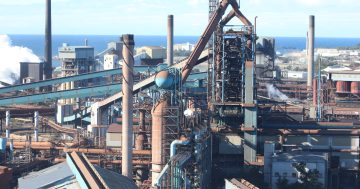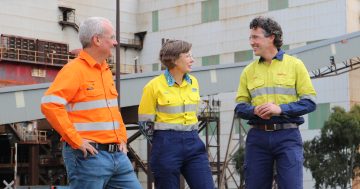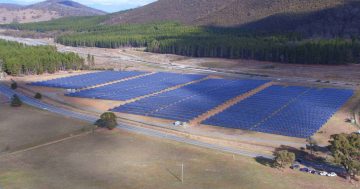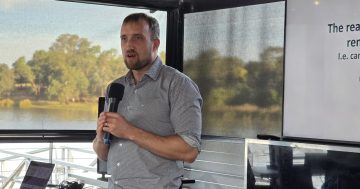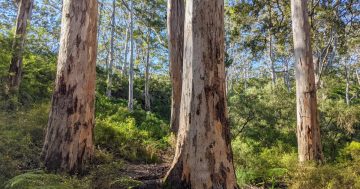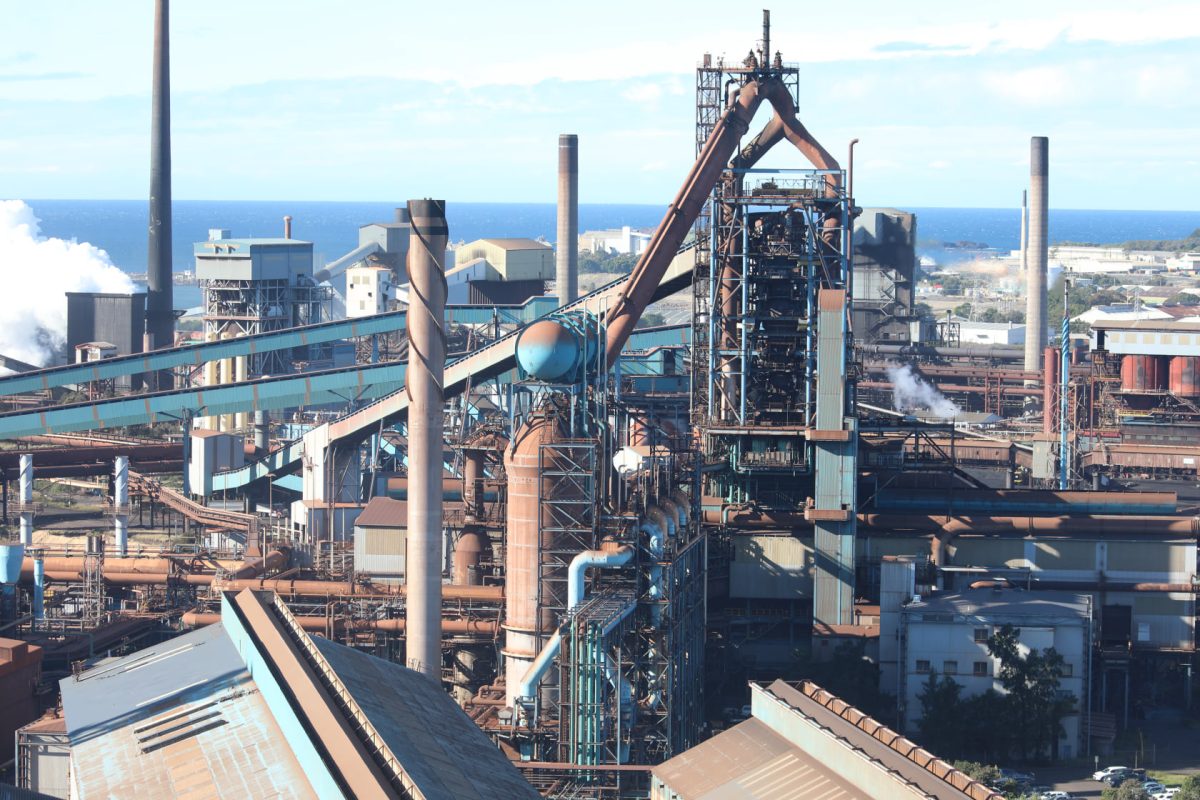
BlueScope Steel is one of 10 Australian companies that don’t have a “comprehensive, independently verified, fully costed pathway to net zero,” according to a new report. Photo: BlueScope.
Ten of Australia’s biggest emitting companies have been issued a climate report card – and two Illawarra businesses have some work to do before they receive a passing grade.
BlueScope Steel and South32’s emission reduction commitments were evaluated as part of the report from the University of Technology Sydney’s Institute for Sustainable Futures, commissioned by Australia-based advocacy group, Climate Integrity.
They claimed both companies lacked independent verification of the targets they set and didn’t disclose how they had set their targets.
The ‘Net Zero Integrity: Assessment of the Net Zero Pledges of Australian Companies’ report said none of the 10 Australian companies had a “comprehensive, independently verified and fully costed plan for reducing their emissions” that would keep global heating to 1.5 degrees Celsius.
Companies were assessed against guidelines laid out in late 2022 by a UN expert group after concerns that corporate climate pledges were often vague, inconsistent and incomplete.
Research director Alison Atherton said without independent verification and science-based strategies, targets and emission reduction claims didn’t mean much.
“Verification means an expert has given their stamp of approval to what the company is doing to meet sector and global emission reduction targets,” she said.
“Without independent verification, regulators have to review the information companies disclose and decide whether the company is meeting their targets, or whether they’re greenwashing – making it look like they’re doing better than they are.
“Verification makes it really clear companies are providing robust, credible information.
“It provides integrity.”
There are a number of independent international organisations that are qualified to verify companies’ emissions reduction targets. The best-known is the Science-Based Targets Initiative (SBTI).
Alison said there were a range of reasons companies might not employ those organisations – they might not think the cost is worth it, or they might be hiding something.
She said the report was designed to spotlight what Australia’s biggest emitters were doing well – and where they needed to improve.
Region Illawarra approached BlueScope Steel and South32 about the report’s findings.
BlueScope Steel declined to comment.
South32, however, reaffirmed their commitment to achieve net zero by 2050.
“As a global mining and metals company, we have an important role to play in responding to the risks and opportunities of climate change: to produce metals that support the transition to a low-carbon world; and to do so in a way that seeks to minimise our impact,” a South32 spokesperson said.
“Our operational decarbonisation pathway to support delivery of our medium-term target and long-term goal consists of three elements: efficiency initiatives in the near term, transition to low-carbon energy in the medium term, and technology solutions in the longer term.
“In 2022, we also released our first Climate Change Action Plan, outlining the actions we are taking to address the risks and opportunities that climate change presents. The plan received strong support from our shareholders and will be reviewed every three years.
“Technology and innovation are crucial enablers of the transition to a low-carbon world and will be critical to delivering against our decarbonisation plans.
“However, some of the innovations we need to meet our long-term goal are not yet technologically or commercially feasible.
“This presents an opportunity for the whole industry and we are playing an active role by reviewing, developing and trialling technology solutions for our operations and our development options.”
Alison said while South32 was one of the better performing companies in the report, their response was disappointing.
She called on Australia’s big emitters to step up and not only do their bit for change, but to identify and advocate for policies that would make the necessary reductions possible.
“Looking at the global picture of what we need to achieve, and how quickly, this is an emergency,” she said.
“Companies need to step up more and treat this as an emergency.
“I understand from their perspective it’s hard, but if the targets we need to achieve aren’t commercially or technologically feasible companies need to set out what they need to happen to make it so, and then visibly support those policies.
“South32’s disclosures were pretty good; they included a lot of data and probably had the most data on how they’re supporting a just transition of any company.
“In a sense they are sticking their necks out by making disclosures, because not all companies are. It’s good they have targets and plans, but if those targets are impossible to achieve, they’re not real.
“None of the companies in the report had committed to phasing out fossil fuels, and without those really strong commitments there’s a question mark around how committed they are to do what’s required.”
Original Article published by Zoe Cartwright on Region Illawarra.


